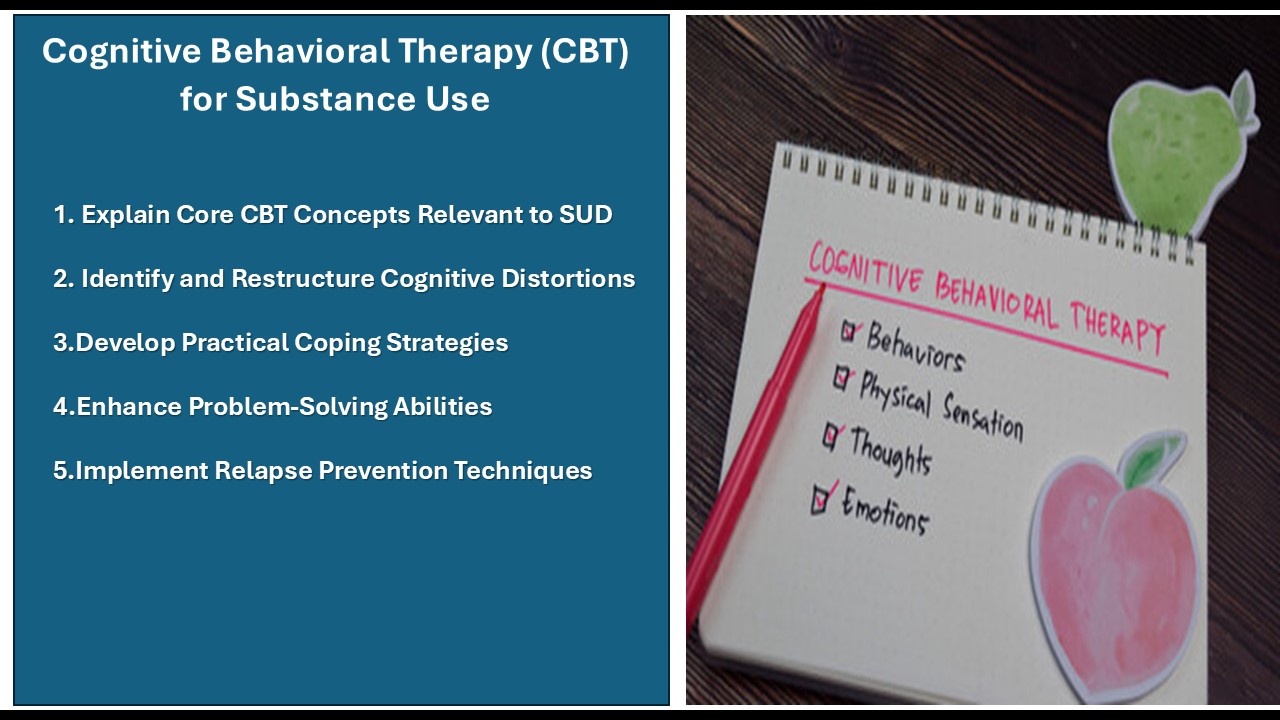A therapeutic approach that examines family interactions and dynamics to address patterns that contribute to or maintain substance use disorders.
Family Systems Therapy In Treating Substance Use Disorders:
Training Description:
Family Systems Therapy In Treating Substance Use Disorders:
Family Systems Therapy for Addiction: This training explores how family roles,
dynamics, and communication patterns can perpetuate or mitigate substance use.
Counselors learn to identify behaviors like enabling and co-dependency and
practice evidence-based interventions that involve family members and partners
in the recovery process. Upon completion, counselors will have strategies to
strengthen family support, resolve conflict, and improve overall relationship
functioning in the context of addiction treatment.
- Recognize the Impact of Family Dynamics on Substance Use
- Identify Enabling and Co-Dependency Behaviors
- Clarify Roles and Boundaries Within the Family System
- Address Resistance and Conflict
- Foster Long-Term Recovery and Relapse Prevention
Course Learning Objectives
This is a web-based self-paced training which provides 2 hours substance specific
board approved hours. The content for this project has been curated or developed by author Michael Daniels
MSW, LCAS, CCS, LCSW and other many amazing professionals who have donated their expertice and time to
ensure practitioners entering the addiction profession have access to quality trainings without barriers
of finance and access.
Receiving Credit: In order to receive credit for the training you must complete the interactive question within
the training. If you do not complete the embedded quizes, when you get to end of the training you will not
receive credit until you complete the embedded quiz questions. In Addition, you must complete the
50 item quiz at the end of the training and receive at least an 85% before receiving your certificate. You do have
the option of retaking the quiz until you reach the approved score. Once you submit your quiz, you will receive
your certificate with in 24 hours.
The patterns of relationships, roles, and interactions within a family that influence behavior, including substance use.
A behavior in which family members unintentionally support or allow continued substance use by shielding individuals from consequences.
A dysfunctional relationship pattern where a family member excessively relies on another, often prioritizing the needs of the addicted individual over their own well-being.
Common roles individuals take on in families affected by addiction, such as the hero, scapegoat, lost child, mascot, or caretaker.
The emotional and physical limits set within family relationships to promote healthy interactions and prevent dysfunction.
An evidence-based approach that involves partners in addiction treatment to improve communication, trust, and recovery outcomes.
A structured therapy approach that integrates substance use treatment with family-based interventions to improve relationships and reduce relapse risks.
The ways in which family members interact and express emotions, which can either contribute to or mitigate substance use issues.
A form of enabling where family members repeatedly intervene to protect an individual from facing the negative consequences of substance use.
The transmission of behaviors, beliefs, and dysfunction across generations, including substance use and co-dependency.
Structured approaches used to involve family members in the treatment process, such as motivational interviewing and systemic therapy.
The collaborative relationship between a therapist and family members that fosters trust and engagement in therapy.
AA strategy that involves family members in identifying high-risk situations, coping mechanisms, and support structures to sustain recovery.
The reluctance or refusal of family members to alter established patterns, often due to fear, denial, or lack of awareness.

Below you will be able to access the training
- Course Introduction (10 minutes)
- Defining SBIRT & Its Purpose (15 minutes)
- Module 2: Core Components of SBIRT (20 minutes)
- Module 3: Rationale and Evidence Base for SBIRT (15 minutes)
- Step-by-Step SBIRT Implementation (30 minutes)
- Tailoring SBIRT for Diverse Populations (20 minutes)
- Course Wrap-Up & Final Assessment (10 minutes)
Additional Resources Related To This Training
Video Related To This Training
Articles Related To This Training
- Applying Family Systems Approaches In Treatment of Substance Abuse and Addiction.
- In-Home Continuing Care Services for Substance-Affected Families:The Bridges Program
- Family Therapy and Treatment For Substance Use Disorders
- Counseling Addicted Families
- Should families do more to help with addiction?
Contact: Michael Daniels: Email: danielsm@ecu.edu: Phone: 252 7372117 for any technical questions
Editorial Disclaimer: Although all information contained in each training is based on validated research, any opinions expressed are those of the author's alone, and do not reflect
the opinions of affillate agencies. Although each training has an NCASPPB approved number, they
are not responsible for the content.